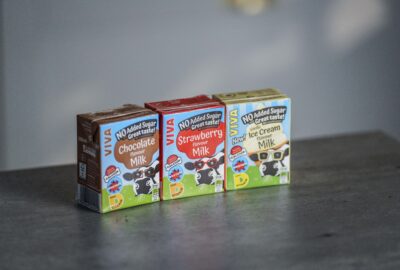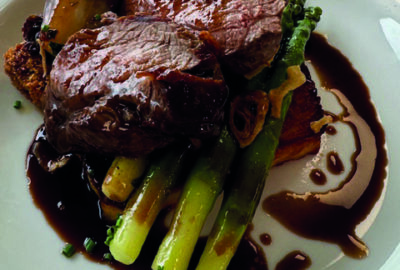Stuart Wilson, Founder of Lost Sheep Coffee has been working in the industry for over 10 years, brewing his own unique style of speciality ‘Aussie coffee’. Having started with a mobile coffee van, the business has now grown to include a further site and award-winning coffee roastery.
Does the best cup of coffee only come from big, expensive machines?
In short NO, a quality recipe and grinder is super important! We can pull some great shots from an entry level commercial machine or even a home machine such as a Sage. But to put into context you could have an amazing espresso machine, something like a La Marzocco Strada with ABR (£13k ex vat machine), but if you don’t have a good recipe and use your grinder properly it will be worthless.
What are your top tips for making the perfect cup of coffee?
Recipe, Recipe, Recipe!! When we are creating espresso recipes for new coffees, we start with a simple 2:1 ratio, something like 18g ground coffee that produces 36g (36ml) of espresso. That takes about 30sec to complete its pour. Always use this solid base for any espresso recipes, once you have this you can then work on fine tuning your recipe to the particular type of coffee you have, thus ensuring the best taste! This is the biggest area I see coffee shops failing on, so many have no idea about this. Yet it is so simple you could not believe!
Do different types of milk affect the quality of a coffee?
We use full fat milk when making milk based drinks, we use this to produce the sweetest milk to marry with the espresso. Aim for a temp of 65c for perfect milk and ensure you stretch the milk properly and not just blast it with steam.
Which milk substitutes work better for producing a latte or cappuccino?
Oat is by far the most popular alternative option these days, our best tip is do NOT take it to hot or it will separate. Aim for around 65c again.
Are there any coffee trends to exploit this year?
With summer fast approaching, cold brew is something to massively get involved with, there is some easy to follow recipes out there that create great drink experiences.
How many different blends of coffee should an operator stock?
Many quality coffee shops now operate on the basis of two grinders, one will hold the ‘House Blend’ that will be used 24/7 and the other a rotating ‘Guest’ coffee, this guest coffee can be a single origin or a blend. But is a great way to introduce customers to a different tasting coffee and a great way to build value. The ‘Guest’ grinder can be used for espresso or filter coffee, many shops now offer a filter option from Guest roasters.
When researching coffee brands, what should an operator look for?
When we look for coffee to ‘Guest’ we don’t just follow the crowd, have a good root around the internet and look for smaller ‘Speciality Roasters’, after all you want something different to most people. A speciality coffee roaster will be able to tell you everything about their coffee, you should expect them to know and you should be able to see the following: Origin drilled down to the town or farm it was grown / Altitude / Varietal (Bourbon/Catuai/Caturra/etc etc) / Process (Washed/Natural/Honey/Etc Etc). Also the roast date should be on the bag. Many roasters will be able to supply images of the farms and farmers which are great to display to customers. Always ask for samples and anyone who cannot answer the above questions is not worth spending your money with in my opinion.
What types of coffee should an operator offer as a minimum (latte, cappuccino etc)?
Milk based drinks are still and most likely always will top the best sellers list, they are a staple of everyday life and will continue to be for sure! But you should defiantly get involved with batch brewing (bulk brewed filter coffee), it is an amazing way to produce great tasting coffee easily and quickly.


